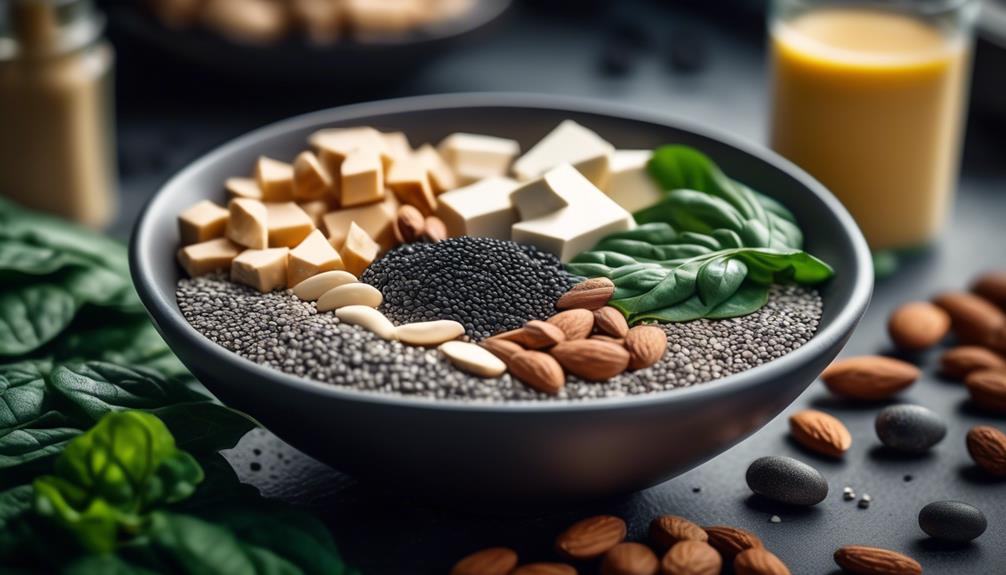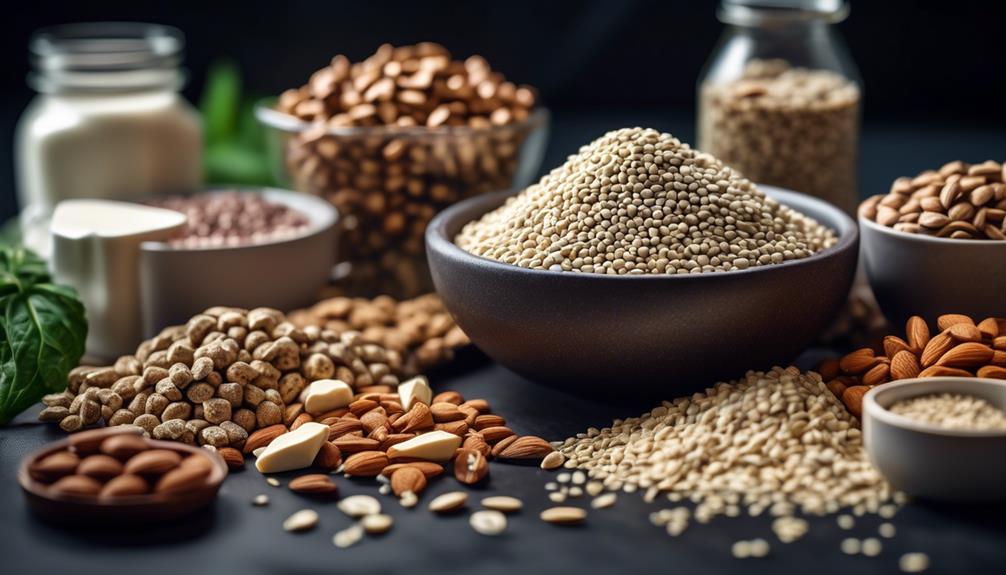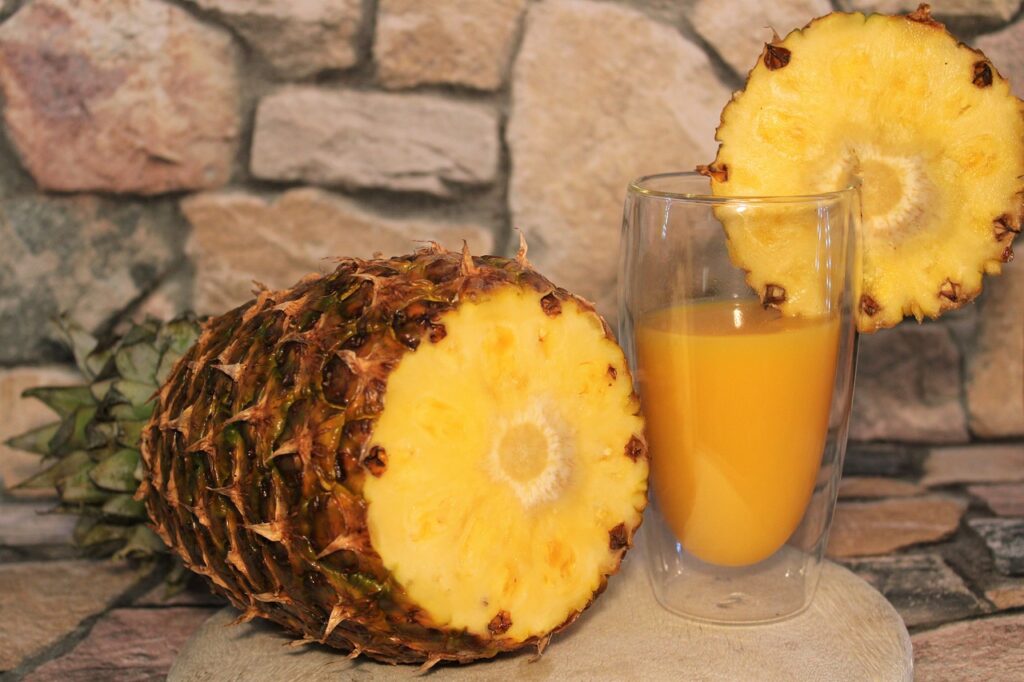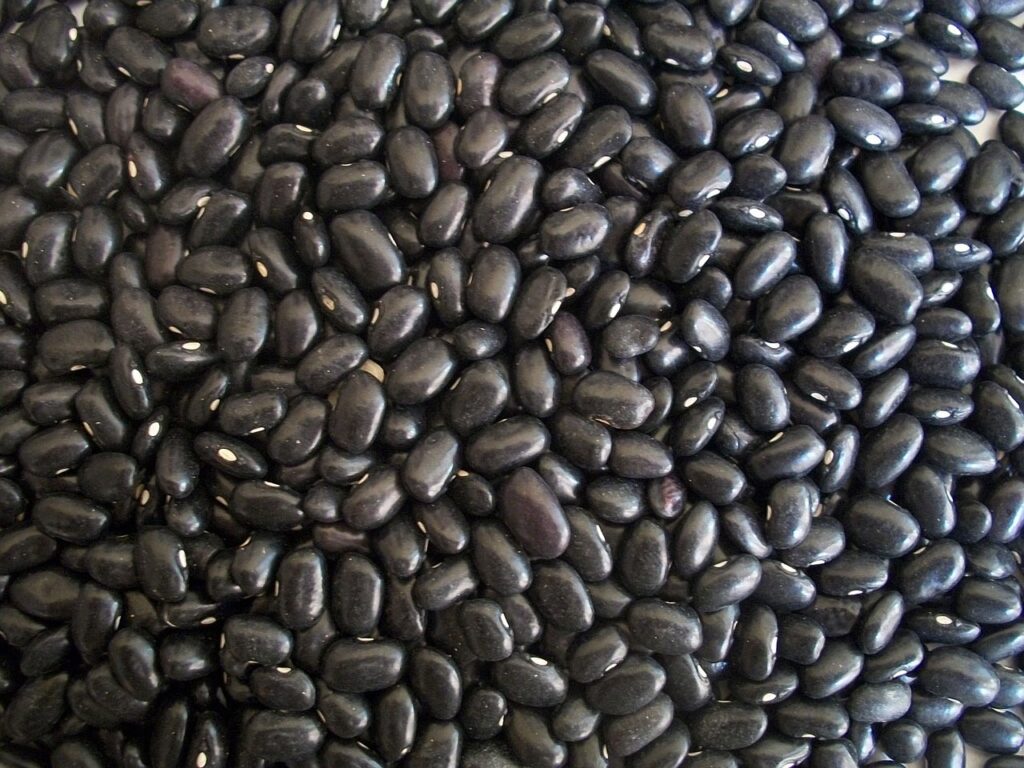Are you struggling to find the perfect protein sources for your dairy-free, keto diet? Well, fear not, because we have just the solution for you!
In this discussion, we will explore the six best plant-based keto protein sources that will not only satisfy your dietary needs but also provide you with the essential nutrients for a healthy lifestyle.
Get ready to discover a world filled with tofu, tempeh, seitan, hemp seeds, chia seeds, and spirulina. These protein powerhouses will not only tantalize your taste buds but also support your fitness goals.
So, get ready to embark on a journey of flavor and nourishment, where plant-based proteins take center stage. Are you ready to elevate your diet to new heights?
Tofu

Tofu is a versatile plant-based protein option that can be a valuable addition to your vegan keto diet due to its high protein content and complete amino acid profile. With up to 14 grams of protein per serving, tofu is an excellent choice for individuals following a low-carb, high-fat diet. Not only does tofu provide a substantial amount of protein, but it also offers all nine essential amino acids, making it a complete protein source.
One of the advantages of tofu is its ability to adapt to various cooking methods and cuisines. Whether you prefer extra-firm tofu for stir-frying or silken tofu for creamy desserts, the different textures of tofu allow for flexibility in meal preparation. This versatility makes tofu an ideal ingredient for creating a wide range of dishes on your vegan keto diet.
Not only is tofu a rich source of protein, but it's also low in carbohydrates, which is beneficial for those following a keto diet. By incorporating tofu into your meals, you can ensure you're meeting your protein needs while keeping your carbohydrate intake in check.
Tempeh
If you're looking for a plant-based protein source on your vegan keto diet, tempeh is worth considering.
With around 18 grams of protein per three-ounce serving, tempeh provides a substantial amount of protein to support your dietary needs.
Its versatility in various recipes, such as tempeh bacon or satay, allows you to enjoy different flavors while meeting your protein goals.
Nutritional Profile
Tempeh, with its high protein content and complete amino acid profile, is a nutrient-dense plant-based protein source suitable for a keto diet. Here is a breakdown of its nutritional profile:
- Protein Content: Tempeh offers approximately 18 grams of protein per 3-ounce serving, making it a valuable source of plant-based protein.
- Essential Amino Acids: As a complete protein, tempeh provides all essential amino acids necessary for optimal health and muscle repair.
- Other Nutrients: In addition to protein, tempeh is also rich in iron, calcium, and probiotics, further contributing to its overall nutritional value.
- Low Carbohydrate: Tempeh is a low-carbohydrate food, containing only a few net carbs per serving, which makes it suitable for a ketogenic diet that relies on fat for fuel instead.
- Versatility: Tempeh's versatility allows for various cooking methods, making it a convenient and adaptable addition to dairy-free, plant-based keto diets.
Cooking and Preparation
To enhance the flavor and texture of your tempeh, consider marinating it before cooking. Tempeh is a versatile plant-based protein source that offers 18 grams of protein per three-ounce serving. It has a crumbly and meaty texture, making it suitable for various recipes like tempeh bacon or satay.
With its high protein content and minimal carbohydrate content, tempeh is an excellent addition to a vegan keto diet. It can be used as a substitute for meat in many dishes. When cooking with tempeh, it's important to consider its distinct taste and texture.
Tempeh can be marinated to add extra flavor and can also provide gut-healing probiotics along with muscle-building benefits. So, get creative and explore the delicious possibilities of tempeh in your low carb diet.
Seitan

Seitan, a versatile meat substitute with a chewy texture, is a high-protein, plant-based food made from vital wheat gluten. It's a great protein source for vegan keto diets, containing approximately 18 grams of protein per 2-ounce serving.
Here are five reasons why seitan should be included in your plant-based keto meal plan:
- Protein Powerhouse: Seitan is packed with protein, making it an excellent choice for those seeking plant-based protein sources. Its high protein content can help support muscle growth and repair, especially when combined with other protein-rich foods like tofu and hemp protein.
- Culinary Flexibility: Seitan can be seasoned and flavored according to your culinary preferences, making it a versatile ingredient in various dishes. Whether you're making stir-fries, stews, or sandwiches, seitan can be easily incorporated to enhance the protein content of your meals.
- Whole Foods Option: Unlike vegan protein powders that may contain added ingredients, seitan is a whole food option. It's made from vital wheat gluten, which means you're getting the protein directly from the source without any additional additives.
- Nutritional Yeast Boost: To further enhance the nutritional profile of your seitan, you can add nutritional yeast. Nutritional yeast is a vegan-friendly source of vitamin B12 and adds a cheesy, nutty flavor to your dishes.
- Healthy Fat Combination: Pairing seitan with healthy fats like almond butter, chia seeds, or coconut oil can provide a balanced keto-friendly meal. These fats not only add flavor and texture but also help increase satiety and support overall health.
Incorporating seitan into your plant-based keto meal plan can help you meet your protein needs while enjoying a variety of delicious dishes.
Hemp Seeds
Hemp seeds are a versatile and nutrient-rich plant-based protein source, making them an ideal addition to a vegan keto diet. These seeds are high in protein, low in carbohydrates, and provide about 10 grams of protein per ounce. Adding hemp seeds to your meals can help you meet your protein intake goals on a plant-based keto diet.
Not only are hemp seeds rich in protein, but they also offer other health benefits. They're a great source of omega-3 fatty acids, which are beneficial for heart health and help balance the omega-3 to omega-6 ratio. This favorable ratio is important for overall health and reducing inflammation.
Incorporating hemp seeds into your diet is easy. You can add them to smoothies, sprinkle them on salads, or use them as a topping for dishes. This way, you can boost your protein intake while enjoying a variety of flavors and textures.
Furthermore, hemp seeds are high in fiber, which aids in digestion and promotes gut health on a vegan keto diet. Fiber is essential for maintaining healthy bowel movements and supporting a healthy gut microbiome.
Chia Seeds

If you're looking for another plant-based protein source to add to your vegan keto diet, chia seeds are an excellent option. These tiny seeds are packed with nutrients and can help you meet your protein intake while following a dairy-free keto lifestyle.
Here are some reasons why chia seeds are a great addition to your diet:
- Chia seeds are a rich source of plant-based protein, containing all nine essential amino acids that your body needs for optimal health.
- With only 1 gram of net carbs per tablespoon, chia seeds are low in carbohydrates, making them suitable for keto diets focused on weight loss and blood sugar control.
- Chia seeds are high in fiber, which can promote satiety, aid in digestion, and support healthy weight management.
- The omega-3 fatty acids found in chia seeds are beneficial for brain health, reducing inflammation, and boosting energy levels.
- Chia seeds are versatile and can be easily incorporated into a variety of dairy-free, keto-friendly recipes such as puddings, smoothies, salads, and baked goods.
Adding chia seeds to your diet can be a simple and effective way to increase your plant-based protein intake while following a keto lifestyle. So go ahead and enjoy the nutritional benefits of chia seeds on your vegan keto journey.
Spirulina
Spirulina is a highly nutritious blue-green algae that serves as a valuable plant-based protein source for those following a vegan keto diet. With approximately 4-6 grams of protein per tablespoon, spirulina is a concentrated protein source that can easily be incorporated into your meals. It's a great addition to smoothie bowls or other vegan recipes to boost your protein intake without consuming excessive net carbs.
One of the benefits of spirulina is that it contains all the essential amino acids, making it a complete protein. Essential amino acids are crucial for muscle growth, repair, and overall health. By incorporating spirulina into your diet, you can ensure that you're meeting your daily protein goals while following a plant-based keto diet.
In addition to its protein content, spirulina is also packed with essential nutrients. It's rich in B vitamins, iron, and omega-3 fatty acids, which are important for energy production, brain function, and heart health.
To enhance the protein content of your meals even further, you can combine spirulina with other plant-based protein sources such as tofu or incorporate it into recipes that include MCT oil. This will help you create balanced and nutritious meals that support your vegan keto lifestyle.
Conclusion
So there you have it, these plant-based protein sources provide a great option for those following a dairy-free and keto diet.
Tofu, tempeh, seitan, hemp seeds, chia seeds, and spirulina offer a variety of nutrients and are rich sources of protein.
Incorporating these into your diet can support muscle gain and recovery while keeping you on track with your dietary goals.
Remember, it's important to choose organic options whenever possible for optimal health benefits.
Keep nourishing your body with these plant-based proteins and enjoy the benefits they've to offer.







